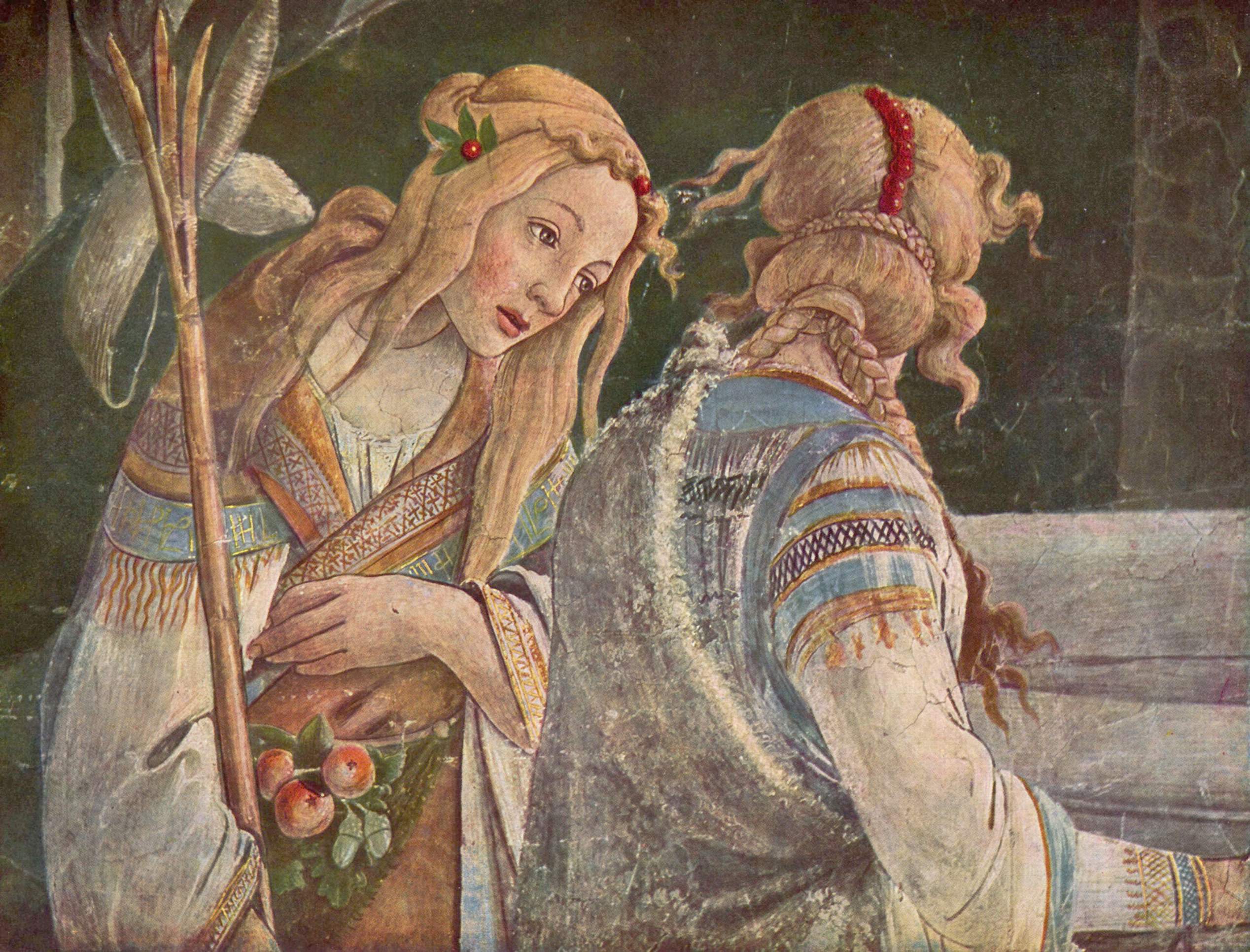Exodus 2:15-21 | 4:18-26 | 18:1-9
I will pay the price of love,
giving up my independence,
entrusting my life into your hands
which, not so long ago,
were strangers' hands to me.
I will pay the price of love,
forsaking my security,
following you to a foreign land
pursuing a call I don't yet understand,
leaving behind all I have known.
I will pay the price of love
as you face the ghosts of your past;
I will fight for your faith where you cannot believe,
I will serve your God where you cannot,
I will save your life if I need to -
my bridegroom of blood.
I will pay the price of love,
giving up my peace to bear your burdens,
comforting you in the face of failure,
embracing you when you meet rejection,
rejoicing with you in each victory won.
I will pay the price of love,
following you into uncertainty,
falling with you into the hands of a God
who used to be a strange God to me.
I will pay the price of love,
obeying when you send me from you,
waiting, hoping, wondering, pining
out in the distance away from you.
And all the while
I will reap the benefits
of being yours
and calling you mine.
No matter how high the price I pay,
I receive back hundredfold
and I will never regret
the blood and the tears,
the worries and fears,
the burdens and sighs -
this love is worthwhile.
__________________________________________________________________
[29. April 2016]
To understand everything in this poem you'll have to read the three texts in the link at the top... (ahem... I'm hoping everyone reads the Bible texts too and not just my interpretations!)
Zipporah is mentioned mainly in those three chapters of Exodus... where she meets and gets married to Moses, where he takes her with him to Egypt, and where (at some point) he sends her back to her father (to be reunited again later when the Israelites had crossed the wilderness, Ex 18). I followed that "track" here.
Zipporah had various challenges to face in her marriage to Moses - on the one hand I guess he would have been burdened by his complicated past (close shave with death as a baby, adoption, finding out about his true identity, committing murder, persecution and exile...), on the other hand she became wrapped up in his calling to free the people of Israel from Egypt. We often view Moses as the powerful, confident leader, but when God called him he was not all that confident (e.g. saying God should find a better speaker) - and who was he at home, alone with his wife? With all he was going through - the Pharaoh not yielding, the Israelites doubting him - he probably did not reach home in the brightest of moods and could use some comfort and someone to ease the rejection he was feeling from everyone else.
The middle stanza with the "bridegroom of blood" refers to the (somewhat weird) scene where God wants to kill Moses and Zipporah cuts off her son's foreskin to save his life. I can't say yet how best to interpret that episode, but out of my gut I see it as Zipporah doing what Moses failed to (circumcision of their sons - sign of their belonging to God), stepping in for him in a moment of crisis.
Basically I guess this is about love and marriage not just being simple and easy... there are always challenges (of various kinds) to face, be it finding out your spouse has character weaknesses that start bothering you after a while, be it outside challenges like having to move somewhere for the other's sake (as Zipporah did...), be it sharing burdens, etc. Maybe that's why so many marriages get strained after a while? The question is whether we are willing to pay the price, i.e. not just take and receive, but sacrifice our own freedoms / comforts / wishes too. Taking the bad days along with the good, bearing the burdens along with the victories, is all worthwhile in the end.
Years ago, my Papa once wrote something very wise to me which I share with you here:
"To love someone, you need to think of what is good for the other person, not what is nice for me. That type of life is limited to what I like, what feels good for me. There is too little willingness to sacrifice, which is what builds a relationship. The more we both surrender, the more common space we create between us to establish something new, belonging to us both. What we do not surrender remains just the possession of one of the two."Picture by Sandro Botticelli - detail from "The Trials of Moses"

No comments:
Post a Comment